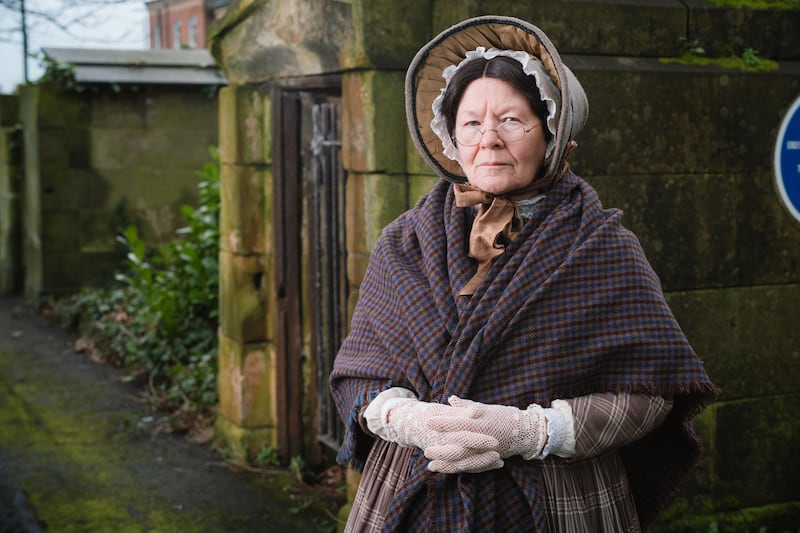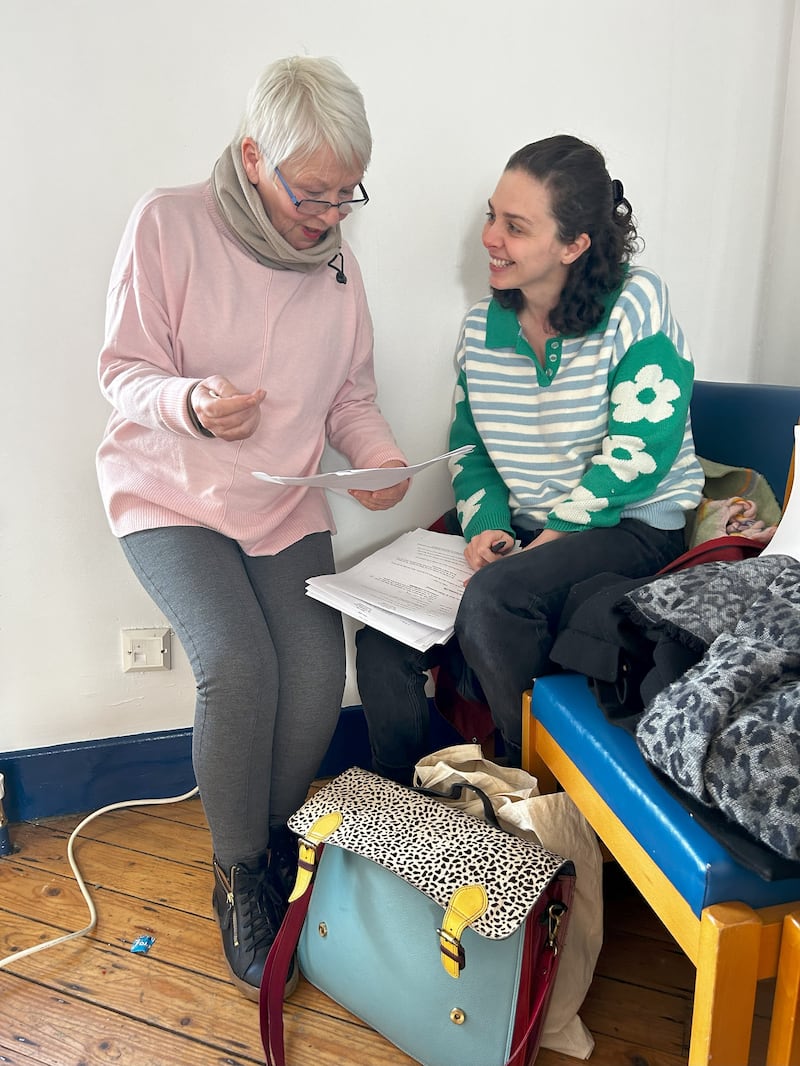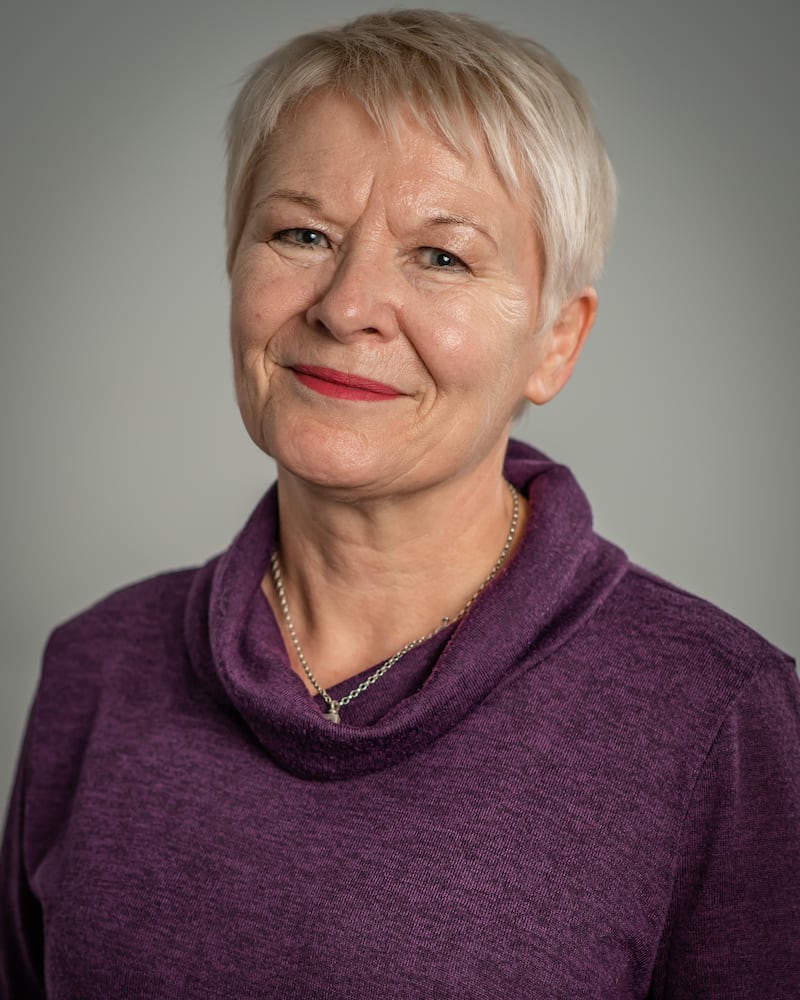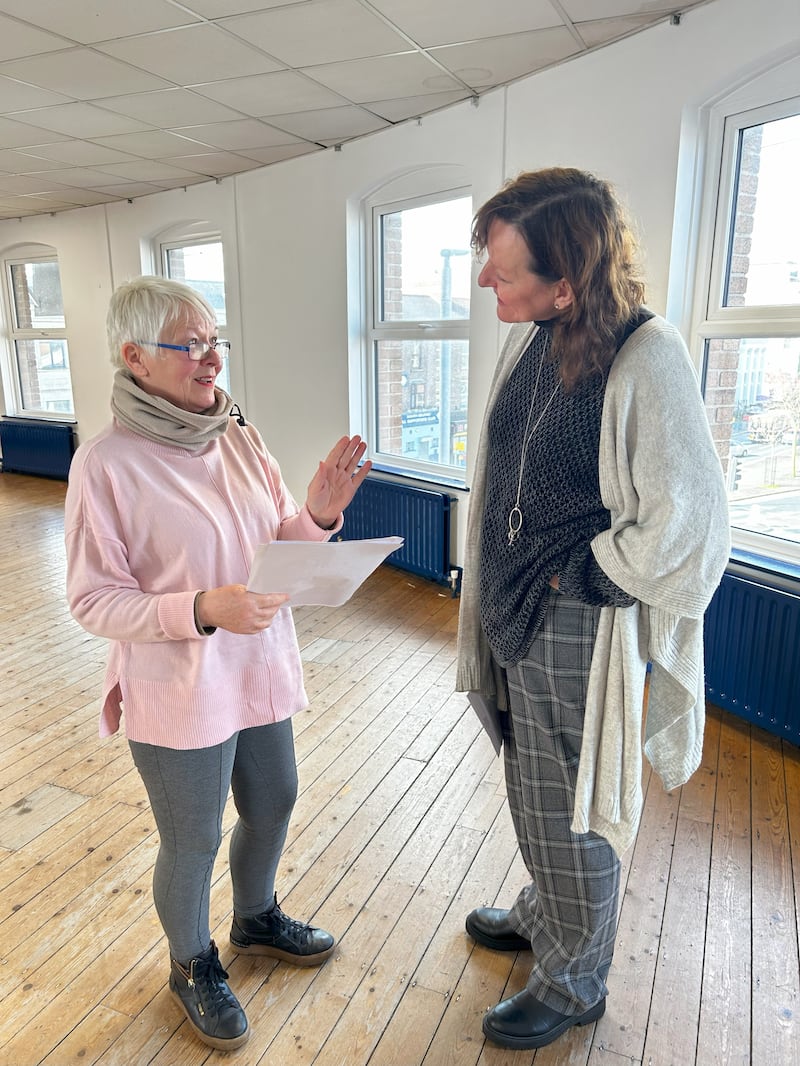NONAGENARIAN revolutionary, feminist, reformer... the 18th century shoes of Belfast’s Mary Ann McCracken are certainly big ones to fill, but actor Carol Moore is finding them a perfect fit in a new production for Kabosh Theatre.
A feminist and equality campaigner herself, the Bangor-based actor, director and filmmaker is embracing her “ideal role” as ‘The Forgotten Sister’ of Henry Joy McCracken, co-founder of The Society of United Irishmen in 1791.
In a timely new type of ‘promenade theatre’, she plays the social activist and champion of Belfast’s poor in “theatrical walking tour” Mary Ann, The Forgotten Sister, written by Clare McMahon, directed by Paula McFetridge and co-starring actors Maria Connolly and Calla Hughes.

“It is perfect timing, really,” says Moore during a break in rehearsals for this weekend’s first run of outdoor performances at Clifton House in Belfast. “The walking theatre tour – you would call it ‘promenade theatre’ - follows the recent unveiling of a new bronze statue of Mary Ann McCracken at Belfast City Hall, so we are hoping her story will connect with even more people.
“We take the ‘audience’ through different stages of Mary Ann’s life, moving between Clifton Street graveyard in Belfast where she is buried, to Clifton House, home of the Belfast Charitable Society and where Mary Ann played a prominent role in the education of the poor.
“Moving the audience around to different parts of the garden makes it almost feel like we are moving to a different set. It is very exciting theatre and proves you don’t always need a traditional auditorium to tell an important, historical story – and one which still has relevance for young women today.”

Born in 1770, Mary Ann McCracken fought tirelessly for equality and to improve the lives of underprivileged children, continuing to activate her social conscience well into old age.
“At the age of 90, Mary Ann had stopped her work at the poor house,” says Moore, “but she saw other injustices – one of them slavery. She would go down to Belfast docks, hand out leaflets and tell whoever would listen that the ships weren’t bound for ‘The Land of the Free’ but for ‘The Land of Slavery’ in America.
“She was in every committee going, whether it was to stop young boys from going up chimneys or helping children learn to read God’s word – whatever their religion. She was groundbreaking, really, whichever way you looked.”
This is a story which still has relevance for young women today
— Carol Moore
One of the co-founders of Charabanc Theatre (on which she is currently writing a book), Moore has portrayed many strong women from history in a career spanning four decades, although she admits she has never played a woman in her nineties until now.
“I would like to point out that I’m not actually 90,” she says, laughing, “but I was delighted to find out quite recently that I am a year younger than I thought I was. I was filming a children’s television series last year about young adults who are neurodivergent and we were talking about age.
“I said I was 68, but that night I was with two friends who were talking about the pension and one said, ‘Carol, you’re not 68, you’re 67 - so, I went back the next day and told everyone I had reclaimed a whole year, which was very exciting news for me.”
Age is something she has become ever more aware of over the years, the “invisibility” of older women leading to her writing and performing one-woman play, The Experience of Being (2019), inspired by her introspection after turning 60.

“I didn’t intend to write it,” she says. “It was the result of me turning 60 and suddenly realising the normalisation of ageist language with regard to women. I began to think about it and then I began my research and thought, ‘Oh, my goodness, women feel invisible – particularly single women.’”
Another empowering piece on growing older came with The Gap Year - written by Clare McMahon and starring Moore, along with Marion O’Dwyer and Libby Smyth –staged at the Lyric Theatre in 2022. It drew similar reaction and praise from audiences, with the idea of throwing caution to the wind and taking a girlie road trip when in their sixties resonating with many women.
“It was a very powerful piece,” observes Moore, who played newly-widowed Kate in the production. “All three characters decided that life was too short, so we took ourselves off for an adventure of a lifetime. At the end, they basically find themselves as women and go on to approach the future in a more positive, proactive way.”
- ‘This is such a tough profession, particularly for older women. The roles really, really dry up’ - Les Mis and Abomination star Rebecca CaineOpens in new window
- Cliona Hagan on the wit and grit of Dolly Parton as she opens The Dolly SongbookOpens in new window
- Comedy legend Roy Walker says he is ‘just getting started’Opens in new window
Age has not been the only barrier encountered by the actor who recalls how Charabanc began by necessity – due to gender bias evident in theatre roles and opportunities at that time.
“Charabanc was groundbreaking in its own way, when we got together in 1982,” she says. “At that time, we weren’t thinking about forming a company; all we wanted, as female actors, was more satisfying work - that was the impetus. Then, when we started researching 100 years of Belfast history, we came across the mill girls strike in 1911 and that led to our first production, Lay up Your Ends, with Martin Lynch in 1983.
“That time was very much a journey of female empowerment and I suppose a lot of the work I have done since is about those type of women, amazing women – like trade union leader and human rights activist Inez McCormack who, as well as playing her once in a Kabosh production called Seven [about seven transformative women leaders] was a role model for me in real life.”
When not writing, making films or performing, relaxation for the 67-year-old Moore comes in the form of gardening – but even that led to new work - a gardening and art therapy project for older people.

“I am obsessed with my garden,” she reveals, “and when we were in lockdown, I spent a lot of time just thinking in my little summer house. I had previously done a dementia project in respite day centres and I was thinking about how those people were coping in the lockdown when I came up The Occasional Gardener project for Kabosh Theatre.
“We go into care homes in Belfast and do art and gardening therapy with residents, along with some reminiscence work to get people talking. I’m looking forward to the third one starting again soon; it has proved very therapeutic for us all.”








